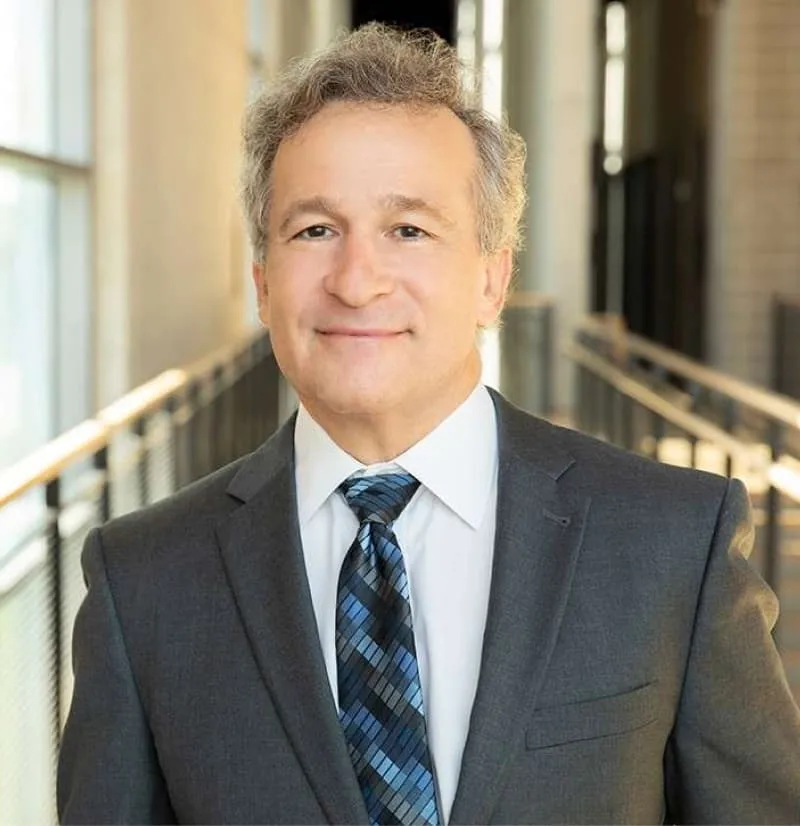“Can Medical Justice solve my problem?” Click here to review recent consultations…
all. Here’s a sample of typical recent consultation discussions…- Former employee stole patient list. Now a competitor…
- Patient suing doctor in small claims court…
- Just received board complaint…
- Allegations of sexual harassment by employee…
- Patient filed police complaint doctor inappropriately touched her…
- DEA showed up to my office…
- Patient “extorting” me. “Pay me or I’ll slam you online.”
- My carrier wants me to settle. My case is fully defensible…
- My patient is demanding an unwarranted refund…
- How do I safely terminate doctor-patient relationship?
- How to avoid reporting to Data Bank…
- I want my day in court. But don’t want to risk my nest egg…
- Hospital wants to fire me…
- Sham peer review inappropriately limiting privileges…
- Can I safely use stem cells in my practice?
- Patient’s results are not what was expected…
- Just received request for medical records from an attorney…
- Just received notice of intent to sue…
- Just received summons for meritless case…
- Safely responding to negative online reviews…
When I was a resident, over the trauma hospital’s loudspeaker I’d often hear, “Paging “Doctor Doktor.” There was a resident whose last name was “Doktor.” This person was a doctor before he graduated from medical school. He was a Doktor in the delivery room. And all of his family members were Doktors, whether or not they went to medical school.
Most of us intuitively conclude that once we graduate from medical school, we can call ourselves “Doctor.” That’s the impression my medical school’s dean gave our graduating class as we walked across the stage to collect our diplomas and congratulations.
Apparently, it’s not that simple.
Introducing State of California Business and Professions Code §2054
2054. (a) Any person who uses in any sign, business card, or letterhead, or, in an advertisement, the words “doctor” or “physician,” the letters or prefix “Dr.,” the initials “M.D.,” or any other terms or letters indicating or implying that he or she is a physician and surgeon, physician, surgeon, or practitioner under the terms of this or any other law, or that he or she is entitled to practice hereunder, or who represents or holds himself or herself out as a physician and surgeon, physician, surgeon, or practitioner under the terms of this or any other law, without having at the time of so doing a valid, unrevoked, and unsuspended certificate as a physician and surgeon under this chapter, is guilty of a misdemeanor.
(b) Notwithstanding subdivision (a), any of the following persons may use the words “doctor” or “physician,” the letters or prefix “Dr.,” or the initials “M.D.”:
(1) A graduate of a medical school approved or recognized by the board while enrolled in a postgraduate training program approved by the board.
(2) A graduate of a medical school who does not have a certificate as a physician and surgeon under this chapter if he or she meets all of the following requirements:
(A) If issued a license to practice medicine in any jurisdiction, has not had that license revoked or suspended by that jurisdiction.
(B) Does not otherwise hold himself or herself out as a physician and surgeon entitled to practice medicine in this state except to the extent authorized by this chapter.
(C) Does not engage in any of the acts prohibited by Section 2060.
(3) A person authorized to practice medicine under Section 2111 or 2113 subject to the limitations set forth in those sections.
Let’s dig in.
If you do not have a current license to practice medicine in California, can you use the label “Dr.”; “physician”; or “M.D.” on a business card you pass out? What if you are from another state, attending a meeting? What if you live in California and are retired (and you let you California license lapse)?
Well, apparently there are rules.
You either need to have an active license or be covered by an exception.
One exception is if you are licensed in another state (or even another country) and you do not represent yourself as someone practicing medicine in California.
But if you are not licensed in another state (or even another country) or not in an approved postgraduate medical school program, you are at risk for being charged with a misdemeanor.
Really.
So, California expects that if you retire from active practice, you will retire the prefix “Dr.”
Also, just graduating from medical school is not enough to “earn” the initials, “M.D.”, after your name. I always thought the diploma was sufficient to attach the initials, “M.D.” Section 2054 suggests otherwise.
A quick database search for cases that were triggered by Section 2054 noted the most recent activity was in the 1980s. That was when rules for advertising in medicine were much less permissive. It was only in 1977 that the AMA issued new rules allowing some advertising by doctors.
I appreciate that the public is best served if it is not duped by charlatans posing as treating physicians. But if a person who earned an MD degree is not currently practicing and no one is being deceived, must we shed part of our long-earned names?
What about other people in other professions who use the term “Doctor?”
Dr. Jill Biden? She has a doctorate-level degree in education (Ed.D). What if she hands out a business card in Los Angeles?
Dr. Phil? He has never been licensed to practice in California, where he films. He was licensed to practice psychology in Texas but let his license lapse.
“The California Board of Psychology [] determined that he does not need a license in that state because he does not practice psychology on his show.”
How about Dr. Dre, the rapper? Or Dr. J, Julius Irving, the former professional basketball player?
And, of course, PhDs? JDs? What about them?
The trickiest cases involve those who treat patients in medical settings and have doctorate-level training. Doctor of Nursing Practice (DNP)? Or nurses or PAs with other PhDs in (non-healthcare domains?
Confused yet? Yep, me too.
The rule (Section 2054) should be updated and simplified. The test should be whether a reasonable person would be confused by how an individual is using MD, Doctor, or Dr. and tricked into receiving diagnostic or treatment services from someone they thought was a licensed physician?
Lest you think California is the only state with such crazy laws on its books, look further.
The Texas Healing Arts Identification Act mandates that a person using the title “doctor” must “designate that authority under which the title issued or the college of honorary degree that gives rise to the use of the title.” Section 104.004
That’s easy to do if you are licensed to practice medicine in Texas. But if you have a PhD, you need to explicitly need to call attention to the PhD in any written material. Unlike California, the Texas Medical Board rules dictate that medical school graduates may use the initials M.D. or D.O. after their names if they earned that degree. The degree itself is sufficient.
Thinking about this is exhausting. The foundational rules made more sense in a time when professionals stayed put. They earned their degree in one state, were licensed in that one state, and practiced in that one state. Today, professionals earn all types of degrees in many domains, have multiple licenses, and work and play in many states.
Is it time to change “Dr. Phil” to “Phil, PhD?”
What do you think?
Medical Justice provides consultations to doctors facing medico-legal obstacles. We have solutions for doctor-patient conflicts, unwarranted demands for refunds, online defamation (patient review mischief), meritless litigation, and a gazillion other issues. We also provide counsel specific to COVID-19. If you are navigating a medico-legal obstacle, visit our booking page to schedule a consultation – or use the tool shared below.“Can Medical Justice solve my problem?” Click here to review recent consultations…
all. Here’s a sample of typical recent consultation discussions…- Former employee stole patient list. Now a competitor…
- Patient suing doctor in small claims court…
- Just received board complaint…
- Allegations of sexual harassment by employee…
- Patient filed police complaint doctor inappropriately touched her…
- DEA showed up to my office…
- Patient “extorting” me. “Pay me or I’ll slam you online.”
- My carrier wants me to settle. My case is fully defensible…
- My patient is demanding an unwarranted refund…
- How do I safely terminate doctor-patient relationship?
- How to avoid reporting to Data Bank…
- I want my day in court. But don’t want to risk my nest egg…
- Hospital wants to fire me…
- Sham peer review inappropriately limiting privileges…
- Can I safely use stem cells in my practice?
- Patient’s results are not what was expected…
- Just received request for medical records from an attorney…
- Just received notice of intent to sue…
- Just received summons for meritless case…
- Safely responding to negative online reviews…





The California law is nonsense. Any physician who attended medical school is entitled to use the initials MD after their name. They earned the degree. (Ditto dentists, chiropractors, and doctors of osteopathy). They put in four years to earn that degree. California by legislative fiat cannot remove one’s degree or the right to use the word doctor that stems from the degree. There may be case law on this.
However, I am opposed to PhD’s using the term doctor outside of the classroom. G-d help us if they next ask if a doctor is on board a plane for a patient needing medical assistance and a PhD shows up. I am also opposed to nurse practitioners using the term doctor. They have typically attended school for 2 years to reach their RN degree, then work clinically for a couple of years, and then attend school for another 2-3 years. That is the equivalent of a masters, not a doctorate. But they aim to confuse patients and earn by legislation what they did not earn by education.
Yes, but there are NP with a doctorate (DNPs). They have gone through and gotten their degree tk be called doctor. That is what he is referring to here, not NPs without the doctorate.
Have you ever known of a PhD answer a call on a plane for a doctor? Seriously?
And you also need to find out what education Doctors of Nursing Practice actually get. Nurse Practitioners who have a doctorate do not have 2 years RN – they have to have a Bachelor’s in Nursing (4 year degree) and then a Master’s Degree (1-3 years) and then the doctoral education (2-3 years. Many go on to get other education as well. Nurse Practitioners who have a doctoral degree are not trying to be seen as a physician. They are not trying to deceive anyone. They do not “aim to confuse patients.” They know when to refer to a M.D. The aim is to help patients…period! Are there outliers? of course. But there are a lot of outliers among M.D.s as well. Then there are all of the other practices: chiropractors, optometrists, naturopathic doctors, physical therapists, psychologists, accupuncturists, all of which have earned doctoral degrees. By definition, the term doctor means teacher, not physician. Physicians do not own the right to be the only ones called doctor.
“Have you ever known a PhD answer a call on a plane for a doctor?”
Only if someone is having a metaphysical crisis.
The First Amendment protects us for using the moniker “doctor.” That said, unless someone is practicing medicine in California without a Cali license, it’s not at all obvious how the matter would arise in a legal way.
I was on a panel in California a few years ago. My Cali license had lapsed years earlier–very expensive–and onerous–to maintain. By law, I suppose my name on the program as M.D. should make me vulnerable to being charged.
Fuck ’em, I say. Let ’em try.
I put off replying to this article about as long as I could. The history of podiatry is unique. “Podiatrist” Isachar Zacharie routinely treated President Abraham Lincoln, (who it is believed suffered from Marfan’s Syndrome, maybe yes, maybe no) who had gnarly feet (very unprofessional) with painful excrescences’ thickened, fungoused nails and difficulty in walking.
We don’t know if Zacharie actually was trained as a chiropodist or not. Probably not. But allegedly he knew how to do it. Lincoln actually loved this man and Zacharie performed political duties for Lincoln as well, that were undefined.
I think it is reasonable to say that podiatry was born because MD’s thought it “beneath” their collective dignity to bow to treat feet. We see the same case of deliberate loss of face required when Jesus washed the feet of his disciples. So there is a history of loss of dignity associated with feet.
This is ironic because when a patient is no longer able to walk, for any cause, it is close to complete and total disability. Some people manage to live with and in wheelchairs, but it is not the best way to achieve mobility. Foot pain is a whole new definition. It gets your immediate attention, doesn’t it?
At the first chiropody schools, at least 75% of professors were MDs. They still are. So we go back a long way and do a huge number of things that would shock “Dr.” Zacharie. Our training now includes a 3 year surgical residency. I myself took my surgical training at a VA hospital and one of our first Army hospitals (Leavenworth).
I was licensed as a podiatric physician and surgeon in WA state. I actually was the real thing. Only a tiny number of patients eschewed us because we were not MDs. For most, they didn’t give a shit as long as they didn’t remember my name with each step they took. Some of my patients cried when I retired.
It was the most highly gratifying and interesting years of my life and I thank God every day I did this thing. It was what I was meant to be. You would be shocked and surprised to walk in my shoes.
Michael M. Rosenblatt, DPM
On the one hand, I do chafe at the audacity of some who deign to call themselves doctors, who have clearly inferior training and educational background to me (DNP, DC, DPM, etc). No offense, but y’all know it’s true.
But then, I hearken back to days of yore when ‘surgeon and barber’ were equivalent, and doctors placed leeches and practiced shamanism. In those years, PhD’s were clearly the higher class.
What’s in a title? In UK the more senior professorial physicians change from Dr. back to Mr.
All I know is that I modestly resent those who impersonate others with superior pedigree, such as nurses acting like doctors….or lawyers acting like humans….
It may come as a surprise for Dr. Ari to learn that DPM’s with trauma training do ER rotation for foot, ankle and lower leg trauma. He insists that “he has more training” than podiatrists. Perhaps. I never delivered a baby or performed a D and C. I am not qualified to diagnose or treat an intracranial hematoma. Probably most MDs are not either.
But he was probably not called upon to see a tattooed young male in the ER for a motorcycle accident who required surgical treatment of a pilon fracture/tri-malleolar fracture and differentiate between the two. It would also be possible for this to include a compartment syndrome, which would have to be surgically released immediately. A week later, this patient may gather more complexity and develop reflex sympathetic dystrophy. These are (unfortunately) somewhat more “routine “occurrences in the age of electric bikes and motorcycles.
Recently Dr. Kittra Owens, DPM was appointed Chief of Staff at the VA Central Healthcare Administration of Alabama. She is a Navy Veteran who served in Afghanistan, Cuba and Japan.
I am pleased at the opportunity to bring Dr. Ari up to date about podiatrists.
Michael M. Rosenblatt, DPM
Am I still allowed to be called “Provider”?
What about PsyD’s ?
Many are only licensed as MFT’s or MSW’s yet call themselves DR.s, I’d that ok? Thoughts?
According to my father, who earned a PhD, only PhDs should be permitted to call themselves “Doctor” because they had to write and defend a dissertation. Physicians don’t, dentists don’t – so, according to him, I am not a “Doctor.” 😀 Nor is my mother, who earned 4 Master’s degrees and a Professional Diploma and had more schooling than the two of us put together.
And, Dr. Ari, please don’t be so less-than-humble. We all studied our butts off, did the time, took the tests and treat the patients. It’s what we trained to do. I may not have done the internship (not required back then) or residency, but I’m proud to have earned the title of “Doc” and California be damned.
I’m looking for legal medical advise. I’m a British trained podiatrist and surgeon from England and now live in California. I’m now working within academia and as a consultant l. I don’t practice as a podiatrist in the U.S, only England.
I also have a business which sells podiatry products to the public
Podiatrists do not have Dr titles in England as we study a bachelors podiatry degree. The same is for conventional medical doctors who earn a bachelors medical degree but gain the Dr title on a honory basis.
Can I use the Dr title as a podiatrist in California
Ram:
If you had a four year podiatry degree after a bachelor’s degree, then by education you should be allowed to call yourself a physician (except perhaps in California with this new law).
For those folks that are griping about nurses not being called doctors, my reason for not extending that title to them, is that they are not the equivalent of physicians who have had 4 years of college, 4 years of medical school and 3-8 years of residency. I have seen nurse anesthetists, who had 2 years of schooling to get an RN, then worked clinically for 2 years, then went to nurse anesthetist school for two years obtain a masters degree for that 2 years of academic work. Normally a masters degree is conferred with 2 years of academic work, AFTER a baccalaureate degree is obtained. There is a move afoot to have those same credentials used to obtain a doctorate degree. The premise is to obtain by legislation a title that they are not entitled to by education.
DNP’s are not Physicians. Nor do they want to be. They are highly trained nurses with a certain skill set. Some teach Physcicans how to do their jobs by the way! However they have a “DOCTORATE” in the Doctor of Nursing Practice in their particular field. Being called “Doctor” is the highest Honor in ones particular field. Whether you’re a scientist, Surgeon, Nurse, or Historian you have the right if you completed the schooling. You can always call yourself by your title “Oncologist”, “Surgeon”, or “Primary care person” lol. I do think we need to educate the masses of what the term “Doctor” means including a lot of you on this forum. Best wishes!
To be clear, while I left out podiatrists from my earlier posts, that was an oversight. They have obtained a 4 year degree, from a professional school, after obtaining a baccalaureate degree, and they do residency training after their podiatry degree. They are certainly entitled to be called doctor.
For the psychologists with a PhD, we always called them professor, not doctor.
Dear Retired, For psychologists to earn a PhD they need to write and defend a dissertation. They also have earned the title “Doctor.” BTW, when speaking of physicians, I do not label them “doctor;” they are labelled “physician.” When speaking to them, I pay them the respect they have earned by addressing them as “Doctor,” just as I expect and demand the respect and title in return.
So, will Medical Justice defend DNPs?